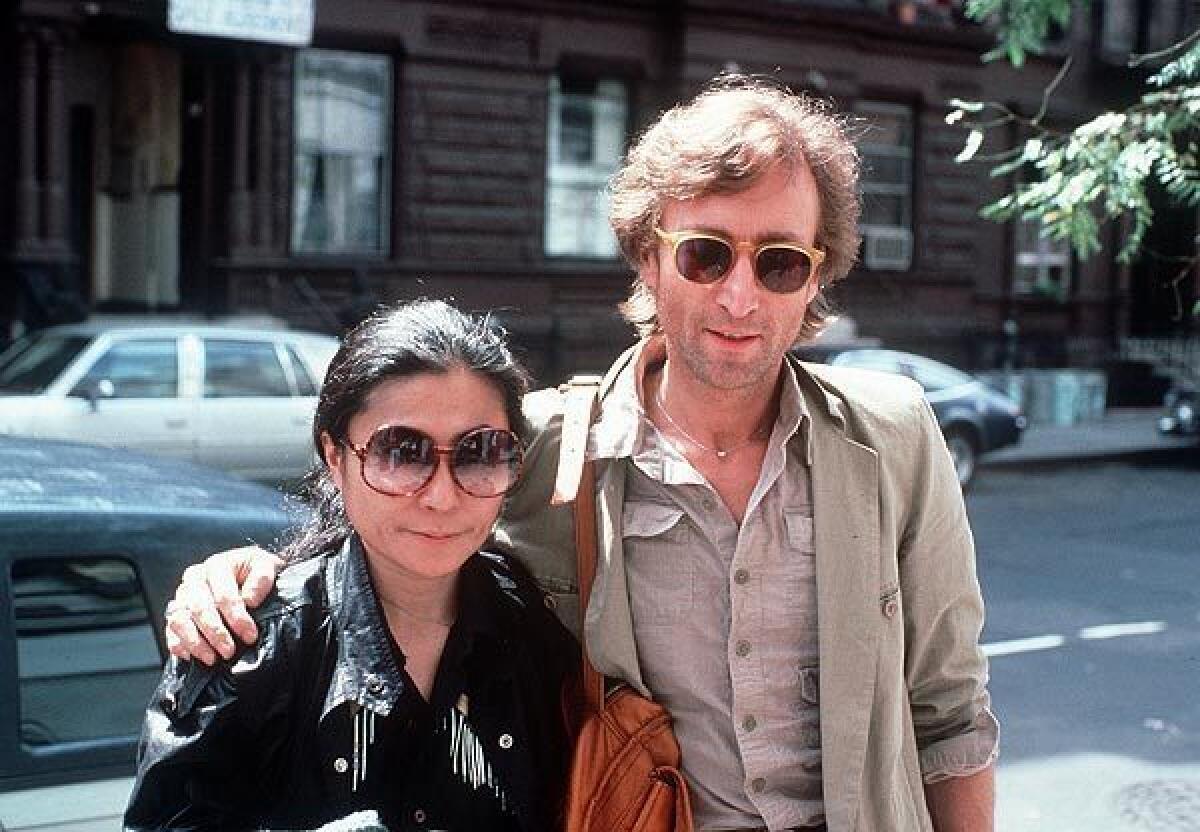Remembering John Lennon through his letters (and postcards)

The night John Lennon died, I was at a Bruce Springsteen show in Philadelphia. The next evening, Springsteen would open with a cover of “Twist and Shout,” but on that fateful night, in the pre-cellphone, pre-Internet era, my friends and I spent the moment of Lennon’s murder blissfully oblivious — until we came out after the concert to find the news burning through the parking lot like a grass fire.
“John Lennon’s been shot,” some kid shouted; we told him to shut up, that it wasn’t funny. Then we got in the car and every radio station was playing Beatles songs, and we knew.
Thirty-two years later (Saturday is the anniversary of his killing), I still miss Lennon — and also, I suppose, the younger version of myself who loved him so. I’ve gone from believing in heroes to not believing in heroes, an inevitable part of growing up, I guess, but one that feels like a loss.
This realization, this strange dislocation, struck me again when I picked up “The John Lennon Letters” (Little, Brown: 392 pp., $29.99), a collection of 285 letters, postcards and inscriptions, edited and with an accompanying text by Beatle historian Hunter Davies. I can do without Davies’ commentary; if you know the Lennon story, there is little here that’s new. But the letters offer an opportunity to see Lennon less as icon than as human being.
Lennon, of course, was always a writer; in 1964 and 1965, he published two books, “In His Own Write” and “A Spaniard in the Works,” that showcased his particular brand of wordplay. That punning style is on display in a 1960 letter from Hamburg to George Harrison’s mother, in which he takes on the persona of a German speaker (malapropisms and all) to assure her that her son is doing fine.
More to the point, we see in these letters the process of Lennon’s becoming, a maturation lived in public yet no less profound for being so. In January 1969, he fired off a scathing response to John Hoyland, a writer for the radical British magazine Black Dwarf, who had accused Lennon of being politically soft.
“You say ‘In order to change the world we’ve got to understand what’s wrong with the world. And then — destroy it. Ruthlessly.’ ” Lennon argues. “You’re obviously on a destruction kick. I’ll tell you what’s wrong with it — People — so do you want to destroy them? Ruthlessly?”
Lennon goes on to demand: “Tell me of one successful revolution.” I’d like to suggest that the only successful revolution is the kind he himself sought to make. Not the “Power to the People” variety (as important as that is), but the revolution of home, of family, that he made while he was living in New York.
This is what I most admired about him when he was living, and it’s what lingers for me now. It’s the revolution not of a hero but of an adult. Lennon understood that the trappings (radicalism, celebrity, even art and music) were meaningless without a bigger connection, a sense of humor and, yes, love.
For this reason, perhaps, my favorite bit of writing here comes from deep in his late 1970s seclusion at the Dakota, when he was baking bread and raising his son Sean.
“This is the Great Wok speakin to you from the heart of the West Side Manhattan New York,” Lennon declares in a holiday open letter. “I am pleased to give my annual yearly message to Ma People. For the New Year 1979 I myself have made my resolution. To renounce completely — everything but complete self indulgence & luxury.”
ALSO:
Offbeat gifts for fans of the Beats
Nobel laureate Mo Yan defends censorship
Alan Moore graphic novel banned from South Carolina library
More to Read
Sign up for our Book Club newsletter
Get the latest news, events and more from the Los Angeles Times Book Club, and help us get L.A. reading and talking.
You may occasionally receive promotional content from the Los Angeles Times.








